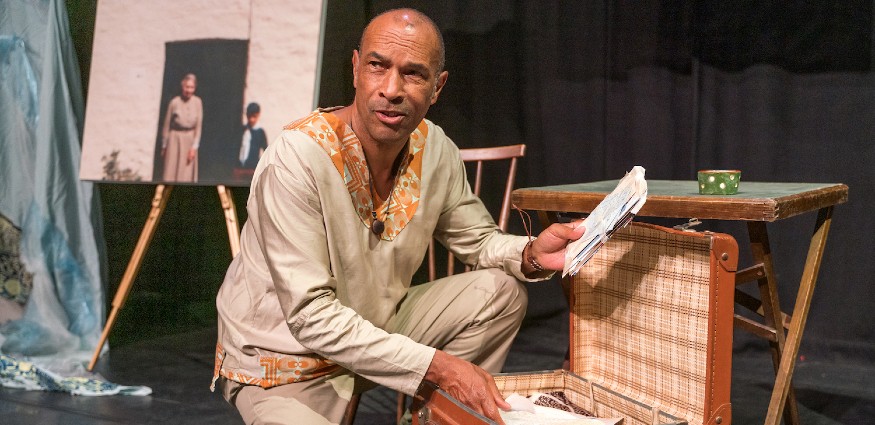Liverpool Hope University’s Capstone Theatre will celebrate Black History Month this October, with a show highlighting what it meant to be a child of dual heritage in 1960s and 70s Wales.
The Gods Are All Here is a one-man performance from Phil Okwedy, a storyteller and writer who recounts his astonishing life in a captivating performance which explores equality, freedom, racism, family and growing up without your birth parents.
The child of a Welsh mother and Nigerian father, Phil was raised in foster care in Pembrokshire and was inspired to pen The Gods Are All Here after discovering a series of letters his dad had written to his mum.
Skilfully weaving myth, song, folktales and legends of the African diaspora, Phil charts the time of life when children are said to view their parents as gods, but never having actually lived with them, he considers if his parents were, in fact, the gods he had imagined them to be.
Reflecting on his one-man show, Phil said: “As I developed as storyteller, there came a time when I felt ready to tell myth but could find none that resonated with me.
“So, I began to weave personal and family stories with folktales as a kind of myth-making exercise. When I found the letters in my mother’s flat after her death, I felt a need to do more with them than just read them, but I was not yet a storyteller and so had no idea what that might be.
“Now, in sharing this show my intention is that it resonates with other people, with their individual family stories but also with the audience as a whole, because it is by working together that we ensure that equality, justice and freedom are experienced by all.”
The Gods Are All Here performs at the Capstone Theatre on Wednesday 25 October at 7.30pm. Tickets are on sale now at Ticket Quarter and priced at £11.50.
Content warning: This show is suitable for ages 12+. This production talks about being brought up with foster parents, there are stories of slavery that include descriptions of violence, and the show contains discriminatory language.
Photo credit: Simon Gough.



